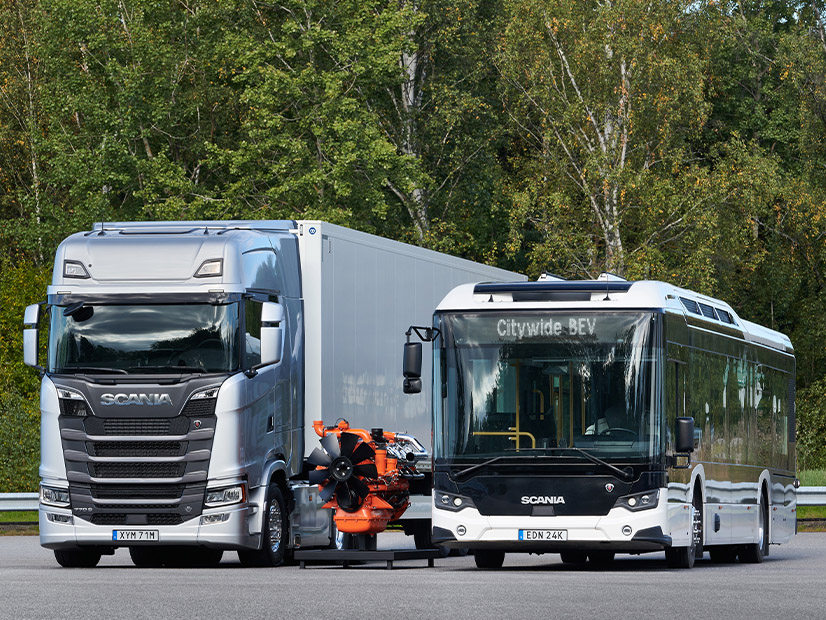
U.S. Transportation Secretary Pete Buttigieg was in Glasgow, Scotland, Wednesday for transport day at the United Nations Climate Change Conference (COP26), but he did not get behind two new pledges targeting 100% zero emission vehicles.
California, however, supported the pledges, which seek to make sales of cars, vans, trucks and buses zero emission by 2040.
U.K. Parliamentary Under Secretary of State Trudy Harrison announced the launch of a declaration that calls on signatories to work toward all sales of new cars and vans being zero emission globally by 2040 and by no later than 2035 in leading markets.
“Countries with a date to end the sale of polluting vehicles entirely represent a fifth of global sales,” Harrison said during the launch event on Wednesday. “Others, like U.S. and China, have also made commitments to rapidly increase the sale of zero emission vehicles.”
President Biden signed an executive order in August setting a target for half of new vehicle sales in 2030 to be ZEV. The White House indicated in a statement at the time that the 2030 target would allow manufacturing to upgrade without stranding assets.
Last week, the U.S. signed on to the Glasgow Breakthrough for road transport, which calls for ZEVs to be the new normal by 2030. (See Biden Joins ‘Glasgow Breakthrough Agenda’ on Climate Innovation.)
Thirty-three countries signed the declaration, and other signatories included California, New York, Washington, nine U.S. cities, and EV software provider WeaveGrid.
The software company signed the declaration because it “believes every vehicle can run on clean energy” and it’s “committed to supporting the ZEV transition,” CEO Apoorv Bhargava told NetZero Insider.
“There are challenges associated with a full transition to ZEVs, but we have the technology and the ability to tackle the climate crisis by bringing together decarbonization advances of two of the largest emitting sectors of the economy: transportation and energy,” he said.
MOU
The Netherlands government joined the nonprofit consortium CALSTART to launch a global memorandum of understanding on zero-emission medium- and heavy-duty vehicles (ZE-MHDV) signed by 15 countries. The signatories agreed to work toward 100% zero-emission new truck and bus sales by 2040 and set an interim goal of having 30% of new ZE-MHDV sales be zero emission by 2030.
On behalf of all the MOU signatories, Netherlands Minister for the Environment Steven van Weyenberg called on other countries to join the effort “without delay.”
For too long, the MHDV sector “was deemed too difficult to decarbonize,” he said at the launch event. “But technology is improving fast, costs are falling quickly, and almost every day newer, revolutionary zero-emission trucks are coming onto the market.”
Swedish vehicle manufacturer and signatory Scania is working to advance electrification of long-haul transport, recently announcing development of a 104-foot electric truck for Jula Logistics in Sweden. The company’s latest endeavor includes building a heavy-haul timber truck for forestry company SCA.
The truck will be capable of transporting 80 metric tons in northern Sweden under “the most difficult conditions just to prove that the technology is ready,” Scania CEO Christian Levin said during a panel discussion at the event.
California joined a group of subnationals and companies in endorsing the MOU.
“Through partnerships with other U.S. states that follow our clean air standards and our clean vehicle rules, the actions we take in California effectively send market signals to about 40% of the U.S. market,” Liane Randolph, chair of the California Air Resources Board, said during the panel discussion. “We are helping to ensure a broadly based, national zero-emission vehicle market.”
Electric vehicles were California’s largest single export last year, Randolph said, adding that the state also is nearing 1 million ZEV sales.
ZEV Infrastructure
Another agreement rolled out at COP26 on Wednesday urges greater coordination on ZEV infrastructure.
California and the Netherlands jointly developed the call to action. While cities, states, automakers and fleet owners are setting increasingly ambitious targets for EV adoption, infrastructure is critical to support the vehicles, the document states.
Signatories of the document “commit to support the increase of EVs by accelerating the timely deployment of related charging infrastructure in our respective roles and in close cooperation.”
More than 30 parties have signed the call to action thus far. They include seven U.S. states — California, Colorado, Maine, New Jersey, Oregon, Rhode Island and Washington — as well as businesses, including Pacific Gas and Electric and automaker Volvo.
The document calls on the various entities to join forces to set infrastructure targets, address gaps in investment and planning, and unplug bottlenecks.
Among the document’s recommendations is development of an EV charging infrastructure market model that can be widely implemented. The model should be based on open standards and be scalable and interoperable. It should be transparent regarding roles, responsibilities, and cost and value allocations.
Another recommendation is to increase synergies between the transport and energy sectors through bi-directional charging technologies.
